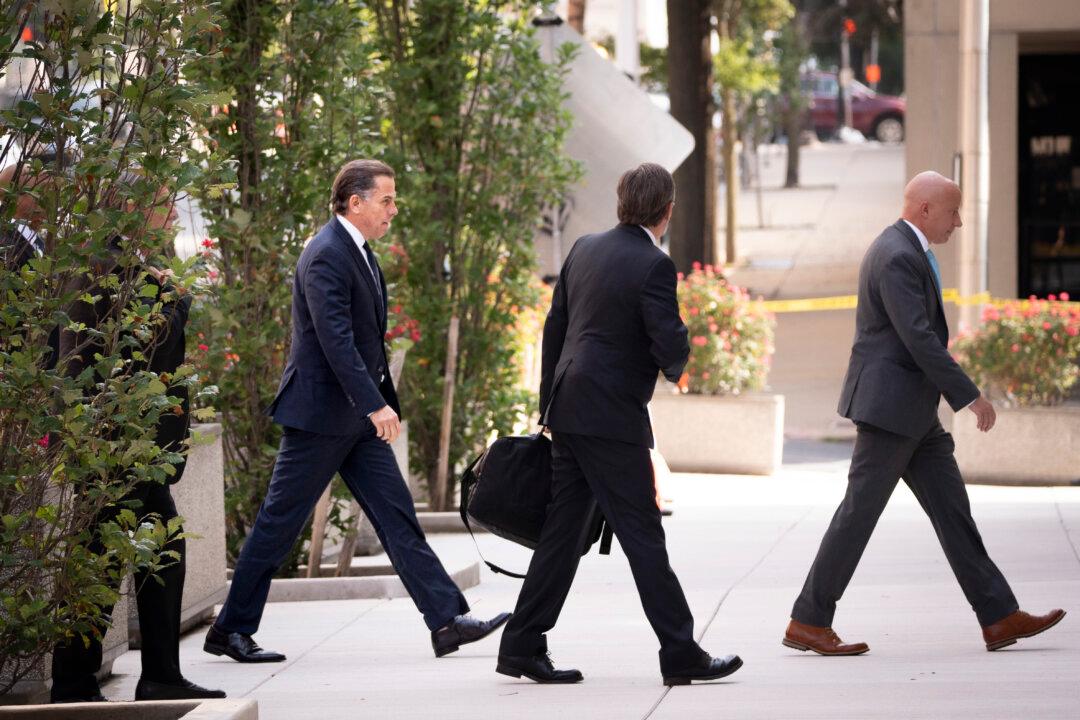WILMINGTON, Del.—First son Hunter Biden’s plea deal hearing on July 26 ended with a deferment of action, as the judge in the case had objections to its structure. Because of the decision, Mr. Biden entered a plea of not guilty for the time being.
The high-profile first son appeared in Wilmington, Delaware, before Judge Maryellen Noreika on several charges related to his alleged willful failure to pay income tax, and possession of a firearm while being an unlawful user of a controlled substance, which constitutes a felony offense.






